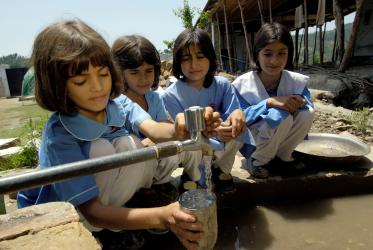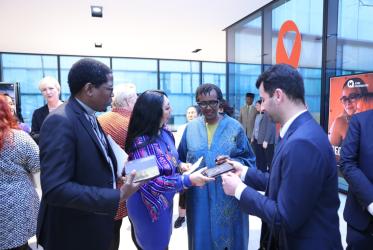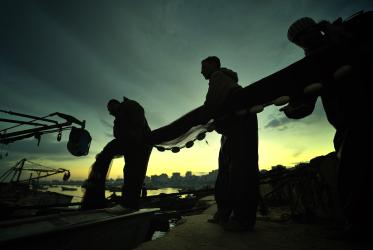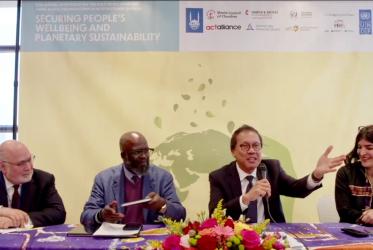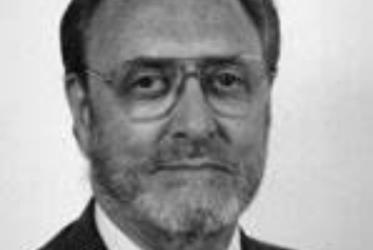Displaying 161 - 180 of 1465
“Faith Community is a Blue Community” - WCC official side event at the UN Water Conference
22 March 2023
UN Church Center, 777 United Nations Plaza, New York and online via Zoom
Seven Weeks for Water 2023 takes global approach
22 February 2023
Ethical Perspectives on COP27 & Looking Forward Towards COP28
09 February 2023
Ecumenical Centre & online
HIV and AIDS Civil Society Networks and the Faith Sector
Lessons Learnt from Strategic Engagement in India, Dominican Republic, Indonesia, and Jamaica
31 January 2023
Two-day event in India focuses on water, sanitation, and hygiene
09 January 2023
Pandemic and pedagogy: what are the valuable lessons?
21 December 2022



